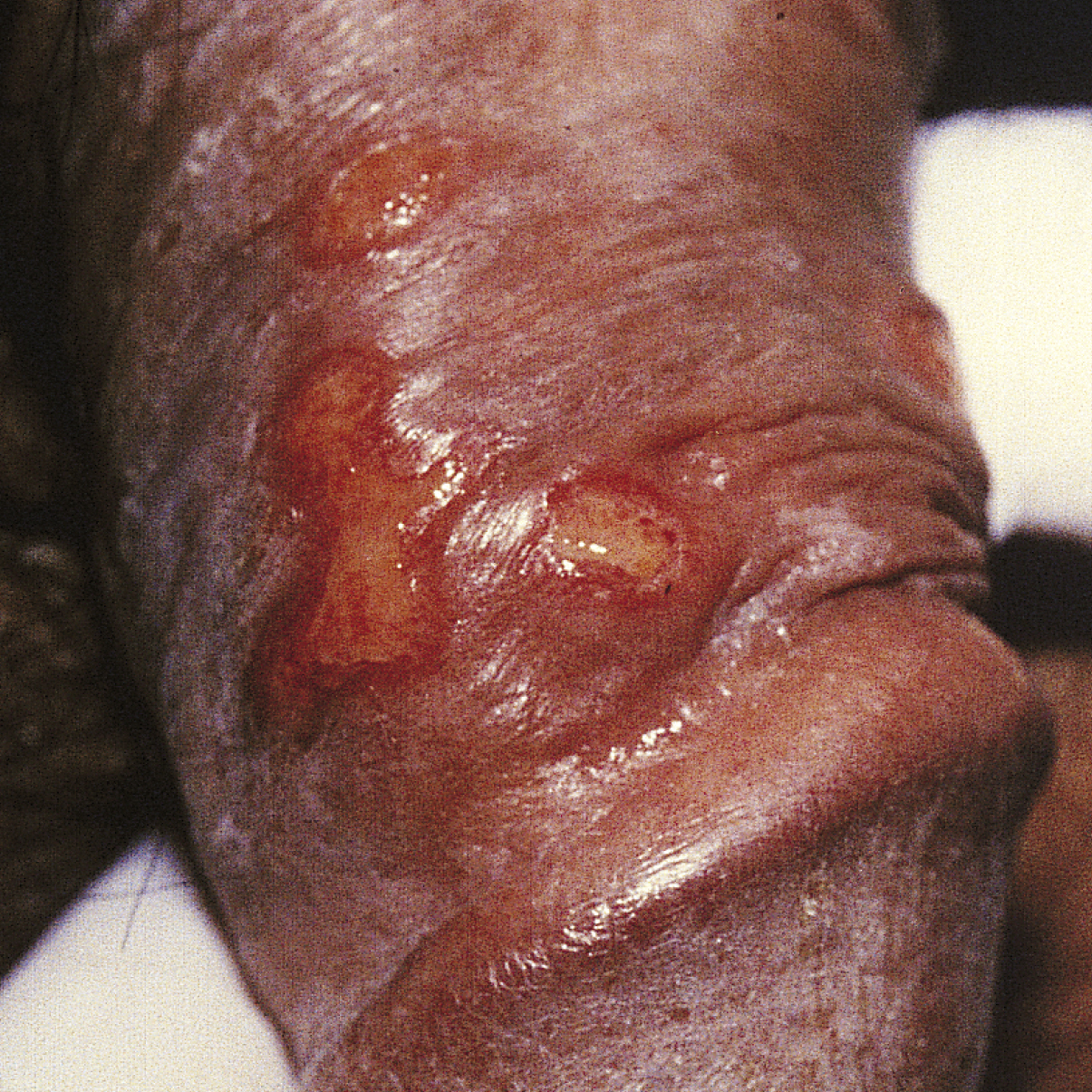herpes genitalis /hur″pēz jen′ital″is/ [Gk, herpein, to creep; L, genitalis, genitalia] , a chronic infection caused by type 2 herpes simplex virus (HSV2), usually transmitted by sexual contact. It causes painful vesicular eruptions on the skin and mucous membranes of the genitalia of males and females. When acquired during pregnancy, HSV2 may be transmitted through the placenta to the fetus and to the newborn by direct contact with infected tissue during birth. It can be a precursor of cervical cancer. ▪ OBSERVATIONS: In the male, herpes genitalis infections may resemble penile ulcers. A small group of vesicular lesions surrounded by erythematous tissue may occur on the glans or prepuce. The lesions erupt into superficial ulcers that often heal in 5 to 7 days, although they also may become the sites of secondary infections. The lesions are painful and are often associated with a burning sensation, urinary dysfunction, fever, malaise, and swelling of the lymph nodes in the inguinal area. The female patient may exhibit the same or similar systemic effects, and members of both sexes may complain of painful sexual intercourse. In the female, herpes genitalis lesions are likely to appear as multiple superficial eruptions on the surfaces of the cervix, vagina, or perineum. There may be a discharge from the cervix. Vaginal lesions may appear as mucous patches with grayish ulcerations. Laboratory tests from smears of fluid taken from the base of lesions show a positive Tzanck reaction with multiple nucleated giant cells, which distinguishes HSV2 infections from other venereal diseases. Infection tends to recur. ▪ INTERVENTIONS: Acyclovir taken orally results in partial control of the symptoms and signs of herpes episodes. The drug accelerates healing but does not eradicate the infection. The antiviral agents valacyclovir, penciclovir, and famciclovir may suppress reaction and also may lessen the severity and duration of the outbreak. ▪ PATIENT CARE CONSIDERATIONS: The provider teaches patients with genital herpes about the potential for recurrent episodes of lesions and advises them to abstain from sexual activity while the lesions are present. Sexual transmission has been documented during phases when no lesions were present. Women of childbearing age with genital herpes should inform their health care provider if they become pregnant.

